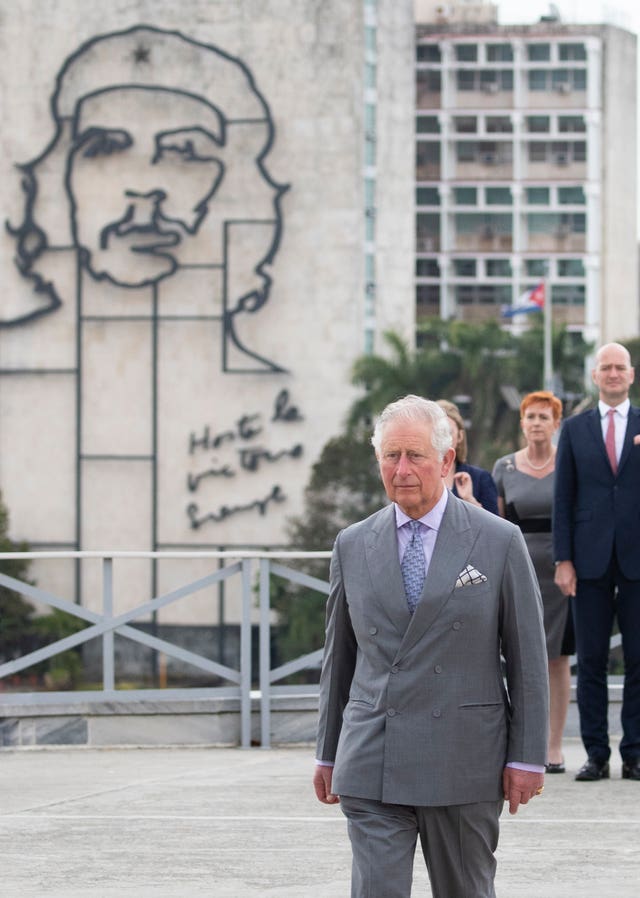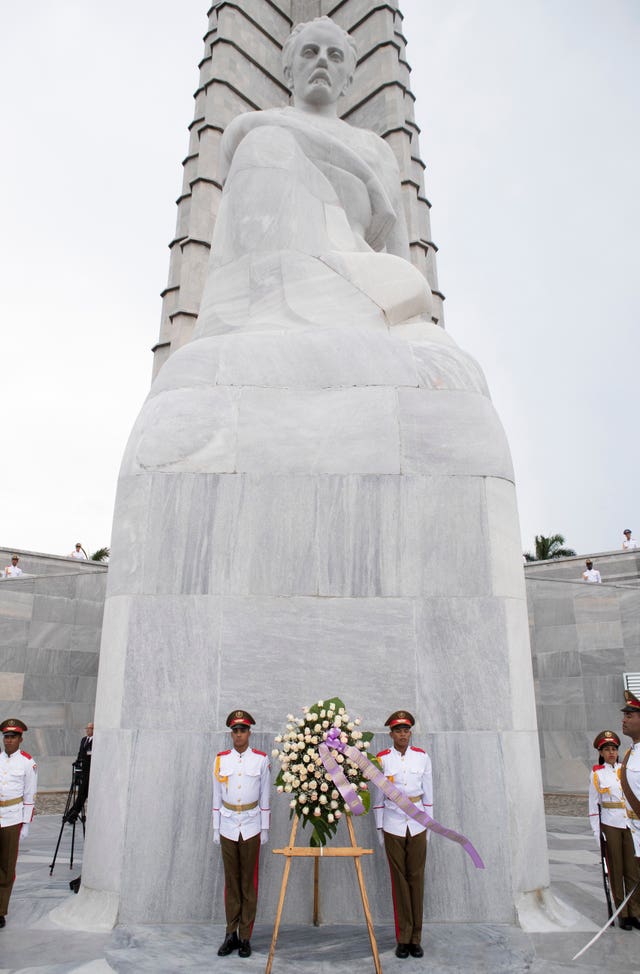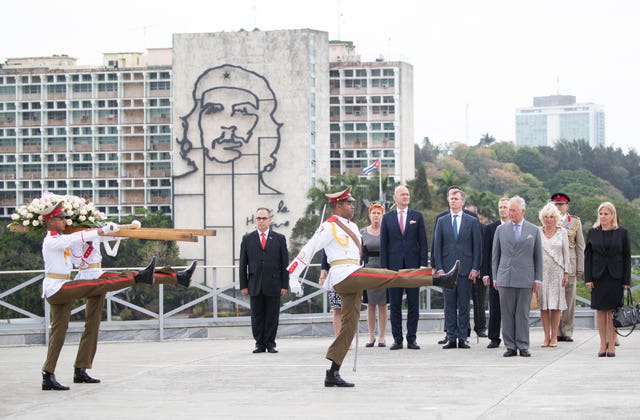The Prince of Wales has honoured Cuba’s national hero Jose Marti at the start of his historic visit to the Communist state.
Charles stood in silent contemplation as a large wreath of roses was laid at the open-air monument to the famous essayist and poet in Havana’s Revolution Square.
Surrounded by imposing ministry buildings, the heir to the throne, whose wife Camilla was nearby, walked behind two soldiers who held aloft the large floral tribute made of roses and then laid it at the stone monument.

The British Embassy in Havana has described the royal visit to Cuba as “a historic moment”.

“A historic moment for both countries.”
Charles’s visit offers an opportunity for the UK and Cuban governments to forge closer ties in the wake of the soft diplomacy employed by members of the monarchy, who use it to make friends and build bridges during foreign tours.

There was another milestone as it is believed to be the first time an RAF plane has landed in Communist Cuba, which had very close ties with Russia during the Cold War.
Later Charles and Camilla were given a tour of the museum dedicated to Marti inside the monument which stands over 100 metres tall and dominates Havana’s skyline.
The Prince of Wales and The Duchess of Cornwall tour the José Martí exhibition, learning more about his life. #RoyalVisitCuba pic.twitter.com/Mq0tTtAMd0
— Clarence House (@ClarenceHouse) March 24, 2019
Curator Eva Maria Diaz told him about the writer’s life and the history of Havana, which prompted Charles to point out that Britain had once occupied the city during the 18th century – “briefly”.
As they left he told her: “I’ve learnt a great deal about Jose Marti.”
Saying that he would like to spend more time in Cuba, he joked: “You might get fed up with us very quickly.”
The José Martí Memorial in Havana pays tribute to the essayist, poet and national hero of Cuba.
Their Royal Highnesses attend a wreath laying ceremony at the memorial. #RoyalVisitCuba pic.twitter.com/4C0sT8rXpb
— Clarence House (@ClarenceHouse) March 24, 2019
He added: “I am sorry to have dragged you in on a Sunday. I hope it is not inconvenient for you.”
Ms Diaz said afterwards about the prince: “He knew that Havana was under British power in the 18th century. It was a very brief period.
“He said that he would like to have more time to continue the visit. He was especially interested in Jose Marti’s life and work.
“I told him that Marti’s writings were published in 27 books, including literary, political and journalistic works.”






